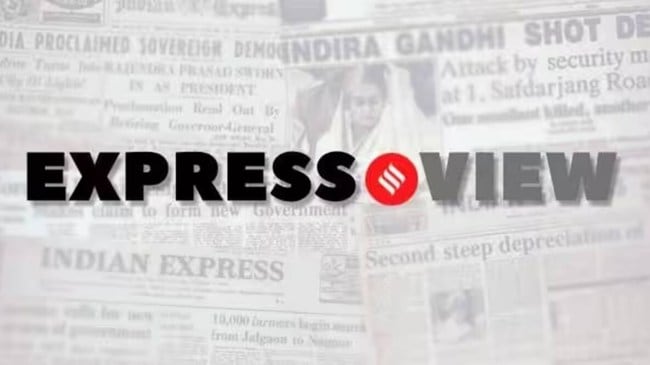Opinion Express View: Saudi-Pakistan defence pact shouldn’t alarm India
But the pact should still prompt reflection on India’s reluctance to extend security support to partners in the Gulf.
 This may be an opportune moment for Delhi to debate the prospects —and constraints — of a more active involvement in the region’s security.
This may be an opportune moment for Delhi to debate the prospects —and constraints — of a more active involvement in the region’s security. India has done well to react with restraint to last week’s signing of the Strategic Mutual Defence Agreement (SMDA) between Saudi Arabia and Pakistan. Over the past decade, Delhi has built an increasingly substantive partnership with Riyadh; Saudi officials also appear to have kept India informed about their talks with Pakistan. This has spared New Delhi the temptation for an over-the-top response of the kind so visible on social media. The pact is undeniably important for the kingdom and for the West Asian region, where India’s stakes have grown rapidly. Amid India’s current tensions with Pakistan, it deserves careful assessment. Saudi motivations for rebooting its long-standing security ties with Pakistan are not hard to discern. Signals from the Trump Administration that Washington is no longer a reliable security guarantor for the Arab Gulf— despite the region’s lavish indulgence of the US President — have compelled Riyadh to diversify its options. Israel’s growing military assertiveness — bombing Arab targets with impunity — has added urgency. And America’s inability to “defang” Iran — its nuclear programme and its proxies that threaten the Kingdom — has left Riyadh little room for complacency.
Yet, much of the commentary about a Pakistani “nuclear umbrella” for Saudi Arabia and the Gulf is exaggerated. Having long financed Pakistan’s faltering economy, and even underwritten parts of its nuclear programme, the Saudis are now merely collecting old IOUs in Rawalpindi. It is Pakistan’s establishment that is taking the real risk by posing as a Gulf security provider. Since Partition, the Pakistan Army has offered various low-level security services to Saudi Arabia and other Gulf monarchies. But it is in no position to confront either Israel — with its unlimited US backing — or Iran, a difficult neighbour for decades. Domestic opposition in Pakistan further constrains Rawalpindi. In 2015, for example, Pakistan’s parliament unanimously rejected participation in a Saudi-led coalition against the Iran-backed Houthis. The simplest explanation for the latest bravado may lie in the ambitions of Pakistan’s army Asim Munir, who seems to be reaching for foreign-policy adventures to shore up his position at home.
Delhi, therefore, has little reason for panic. But the pact should still prompt reflection on India’s reluctance to extend security support to partners in the Gulf. But can India forever remain a mercantilist by-stander in the Gulf? Despite the growing salience of its partnerships in the Gulf, Delhi has chosen to stay on the margins of the region’s geopolitics. This may be an opportune moment for Delhi to debate the prospects —and constraints — of a more active involvement in the region’s security.





